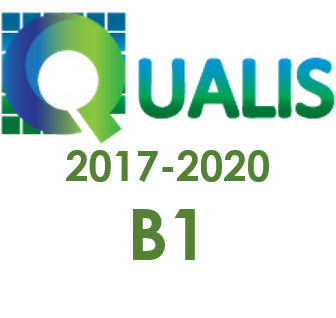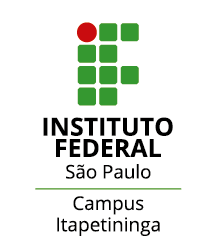Relationships between beliefs about science and disposition towards critical thinking, grade level and gender in secondary school
Keywords:
Beliefs about science. Critical thinking. Grade level. Secondary education. GenderAbstract
The purpose of this study was to investigate the possible influence of disposition towards critical thinking, grade level and gender (as independent variables) on the quality level of secondary school students’ beliefs about science (as a dependent variable). A total of 141 Spanish secondary school students, 75 boys and 66 girls. in grades 8, 9 and 11 took part in this study. A questionnaire on beliefs about science and a questionnaire that maps disposition towards critical thinking were administered to participants. From the Pearson product-moment correlation matrix of the study variables and from the backward stepwise regression analysis it can be concluded that: 1) academic training received and gender seem to have a negligible impact on beliefs about science; and 2) disposition towards critical thinking (that is to say, potential use of critical thinking skills) makes an outstanding contribution to those beliefs.
Downloads
References
Alabau, J., Solaz-Portolés, J. J., & Sanjosé, V. (2020). Relación entre creencias sobre resolución de problemas, creencias epistemológicas, nivel académico, sexo y desempeño en resolución de problemas: un estudio en educación secundaria. Revista Eureka sobre Enseñanza y Divulgación de las Ciencias, 17(1), 1102-1102. https://doi.org/10.25267/Rev_Eureka_ensen_divulg_cienc.2020.v17.i1.1102
Bailin, S. (2002). Critical thinking and science education. Science & Education, 11(4), 361-375. https://doi.org/10.1023/A:1016042608621
Butler, H. A. (2012). Halpern Critical Thinking Assessment predicts real‐world outcomes of critical thinking. Applied Cognitive Psychology, 26(5), 721-729. https://doi.org/10.1002/acp.2851
Cobern, W. W., & Loving, C. C. (2002). Investigation of preservice elementary teachers' thinking about science. Journal of Research in Science Teaching, 39(10), 1016-1031. https://doi.org/10.1002/tea.10052
Conley, A. M., Pintrich, P. R., Vekiri, I., & Harrison, D. (2004). Changes in epistemological beliefs in elementary science students. Contemporary Educational Psychology, 29(2), 186-204. https://doi.org/10.1016/j.cedpsych.2004.01.004
Davis, E. A. (1997). Students' epistemological beliefs about science and learning. Paper presented at the American Educational Research Association, Chicago, IL. Recuperado de https://files.eric.ed.gov/fulltext/ED407257.pdf
Davson-Galle, P. (2004). Philosophy of science, critical thinking and science education. Science & Education, 13(6), 503-517. https://doi.org/10.1023/B:SCED.0000042989.69218.77
Fernández, I., Gil, D., Carrascosa, J., Cachapuz, A., & Praia, J. (2002). Visiones deformadas de la ciencia transmitidas por la enseñanza. Enseñanza de las Ciencias, 20(3), 477-488.
Fisher, A. (2011). Critical thinking: an introduction (2nd Edition). Cambridge University Press.
Franco, A., & Almeida, L. D. S. (2015). Real-World Outcomes and critical thinking: differential analysis by academic major and gender. Paidéia, 25(61), 173-181. https://doi.org/10.1590/1982-43272561201505
Halpern, D. F. (2003). Thought and knowledge: An introduction to critical thinking (4th Edition). Mahwah, NJ: Erlbaum.
Hofer, B. K. (2001). Personal epistemology research: Implications for learning and teaching. Educational Psychology Review, 13(4), 353-383. https://doi.org/10.1023/A:1011965830686
Hyytinen, H., Holma, K., Toom, A., Shavelson, R. J., & Lindblom-Ylänne, S. (2014). The Complex Relationship between Students' Critical Thinking and Epistemological Beliefs in the Context of Problem Solving. Frontline Learning Research, 2(5), 1-25. https://doi.org/10.14786/flr.v2i4.124
Kawashima, N., & Shiomi, K. (2007). Factors of the thinking disposition of Japanese high school students. Social Behavior and Personality: An International Journal, 35(2), 187-194. https://doi.org/10.2224/sbp.2007.35.2.187
King, P. M., & Kitchener, K.S. (2004). Reflective Judgment: Theory and Research on the Development of Epistemic Assumptions Trough Adulthood. Educational Psychologist, 39(1), 5-18.
Kuhn, D. (2005). Education for thinking. Harvard University Press.
Kuhn, D., & Weinstock M. (2002). What is epistemological thinking and why does it matter? In Barbara K. Hofer & Paul, R. Pintrich (Eds.), Personal epistemology: The psychology of beliefs about knowledge and knowing (pp. 121-144). Lawrence Erlbaum Associates.
Lahtinen, A-M, & Pehkonen, L. (2013). ‘Seeing things in a new light’: conditions for changes in the epistemological beliefs of university students. Journal of Further and Higher Education, 37(3), 397-415. https://doi.org/10.1080/0309877X.2011.645458
Leach, B. T., & Good, D. W. (2011). Critical Thinking Skills as Related to University Students’ Gender and Academic Discipline. International Journal of Humanities and Social Science, 1(21, Special Issue), 100-106.
Pardo, O., Solaz-Portolés, J. J., & Sanjosé, V. (2018). Creencias de los estudiantes de educación secundaria sobre la naturaleza de la ciencia y los modelos científicos: un estudio transversal. Educatio Siglo XXI, 36 (3), 465-484. https://doi.org/10.6018/j/350091
Pithers, R. T., & Soden, R. (2000). Critical thinking in education: A review. Educational Research, 42(3), 237-249. https://doi.org/10.1080/001318800440579
Ricketts, J. C., & Rudd, R. D. (2005). Critical thinking skills of selected youth leaders: The efficacy of critical thinking dispositions, leadership, and academic performance. Journal of Agricultural Education, 46(1), 32-43. https://doi.org/10.5032/jae.2005.01032
Santos, L. F. (2017). The Role of Critical Thinking in Science Education. Journal of Education and Practice, 8(20), 159-173.
Schommer, M. (1998). The influence of age and education on epistemological beliefs. British Journal of Educational Psychology, 68(4), 551-562. https://doi.org/10.1111/j.2044-8279.1998.tb01311.x
Tsai, K. C. (2019). Investigating the Empirical Links between Creative and Critical Thinking. Psychology, Society, & Education, 11(3), 267-280. https://doi.org/10.25115/psye.v10i1.1064
Ten Dam, G., & Volman, M. (2004). Critical thinking as a citizenship competence: teaching strategies. Learning and Instruction, 14(4), 359-379. https://doi.org/10.1016/j.learninstruc.2004.01.005
Valenzuela, J., Nieto, A., & Saiz, C. (2011). Critical thinking motivational scale: A contribution to the study of relationship between critical thinking and motivation. Electronic Journal of Research in Educational Psychology, 9(2), 823-848. http://dx.doi.org/10.25115/ejrep.v9i24.1475
Van der Stel, M., Veenman, M. V., Deelen, K., & Haenen, J. (2010). The increasing role of metacognitive skills in math: A cross-sectional study from a developmental perspective. ZDM, 42(2), 219-229. https://dx.doi.org/10.1007/s11858-009-0224-2
Vázquez, Á., & Manassero, M. A. (2004). Imagen de la ciencia y la tecnología al final de la educación obligatoria. Cultura y Educación, 16(4), 385-398.
Veenman, M. V., & Spaans, M. A. (2005). Relation between intellectual and metacognitive skills: Age and task differences. Learning and Individual Differences, 15(2), 159-176. https://doi.org/10.1016/j.lindif.2004.12.001
Vieira, R. M., & Tenreiro-Vieira, C. (2016). Fostering scientific literacy and critical thinking in elementary science education. International Journal of Science and Mathematics Education, 14(4), 659-680. https://doi.org/10.1007/s10763-014-9605-2
Vieira, R. M., Tenreiro-Vieira, C., & Martins, I. P. (2011). Critical thinking: Conceptual clarification and its importance in science education. Science Education International, 22(1), 43-54.
West, E. J. (2004). Perry’s Legacy: Models of Epistemological Development. Journal of Adult Development, 11(2), 61-70. https://doi.org/10.1023/B:JADE.0000024540.12150.69
Zoller, U., Ben-Chaim, D., Ron, S., Pentimalli, R., Scolastica, S., Chiara, M. S., & Borsese, A. (2000). The disposition toward critical thinking of high school and university science students: an interintra Israeli-Italian Study. International Journal of Science Education, 22(6), 571-582. https://doi.org/10.1080/095006900289679
Downloads
Published
How to Cite
Issue
Section
License
Copyright (c) 2022 Revista Internacional de Pesquisa em Didática das Ciências e Matemática

This work is licensed under a Creative Commons Attribution-NonCommercial-ShareAlike 4.0 International License.




